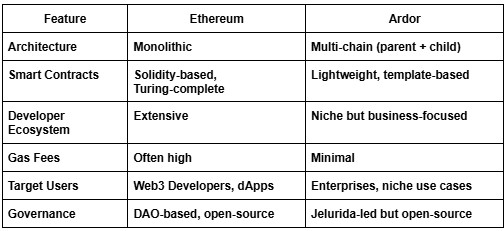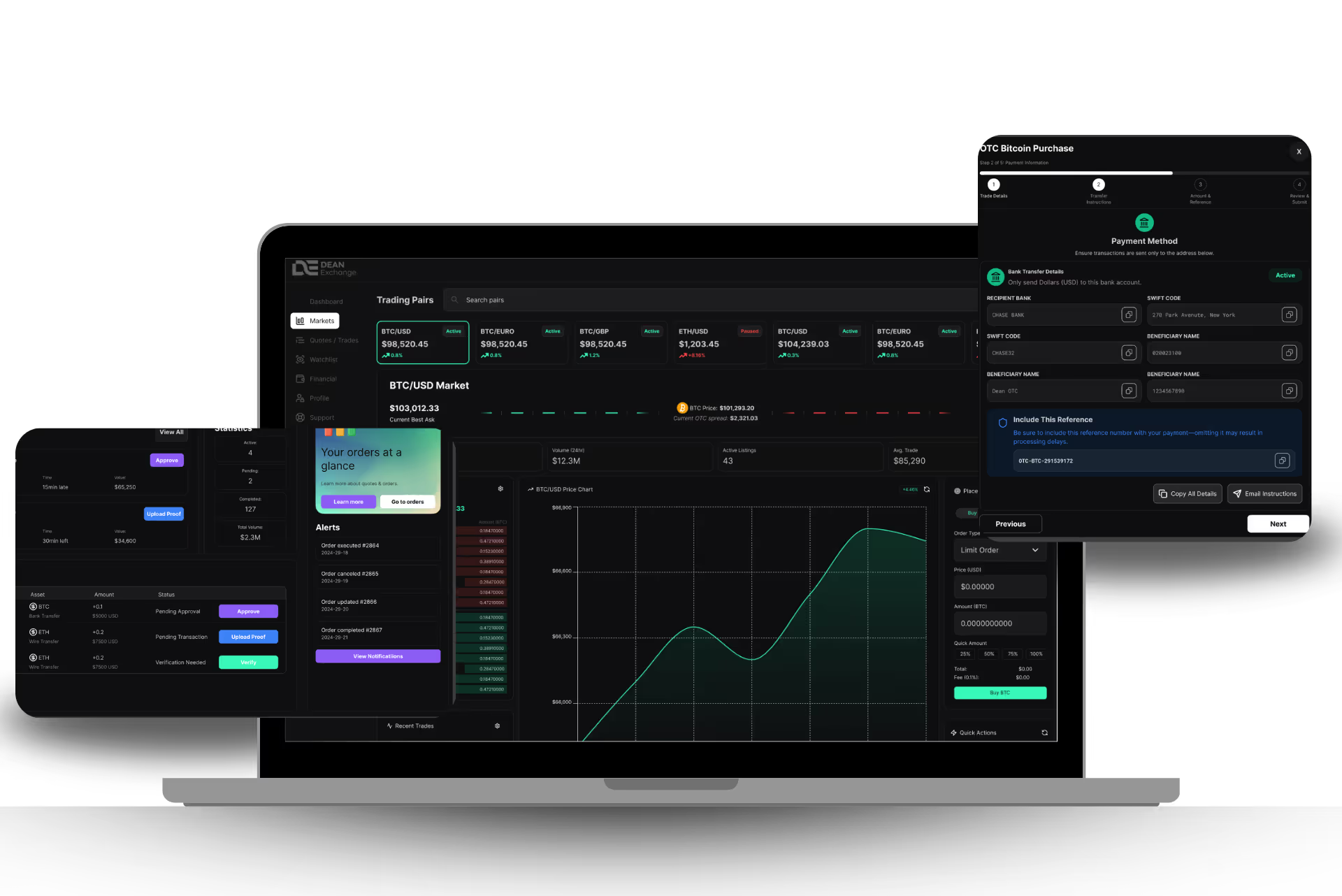By the
This is some text inside of a div block.
This is some text inside of a div block.
•
5
min read

Ethereum is a well-established smart contract platform powering the majority of Web3 innovation. Ardor, on the other hand, offers a unique multi-chain architecture designed to improve blockchain scalability, security, and customization. While Ethereum is widely adopted, Ardor introduces innovative features that appeal to businesses and developers seeking modular solutions.
In this comparison, we explore the strengths and limitations of both platforms, helping users and developers understand which solution might better serve their use cases.
Ethereum Overview
Ardor Overview
Key Differences

Use Case Considerations Choose Ethereum if:
Choose Ardor if:
Dean Exchange Tip: When exploring blockchain platforms, consider not just popularity but suitability. Ethereum dominates Web3, while Ardor quietly delivers scalable, modular infrastructures.
Dean Exchange Learning Resources To understand these platforms further:
Final Thoughts Ethereum and Ardor both serve valuable but distinct roles. Ethereum empowers a decentralized Web3, while Ardor appeals to practical enterprise applications. Whether you're investing, building, or learning, understanding the trade-offs and strengths of each will help you navigate the blockchain space with confidence.
Visit Dean Exchange to explore more blockchain comparisons, project tutorials, and expert resources tailored for both beginners and developers.


Join our newsletter for exclusive insights, breaking crypto trends, and learning opportunities—delivered straight to your inbox.